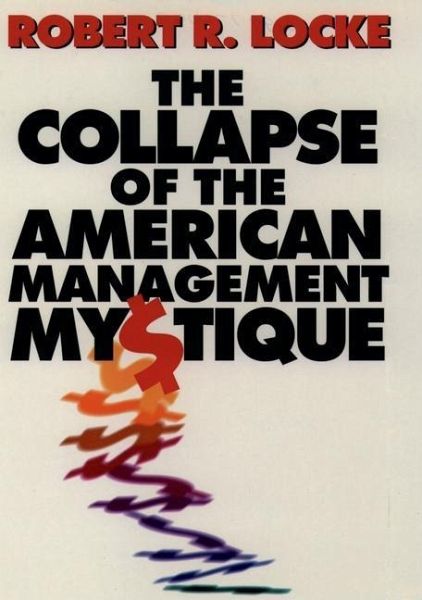
The Collapse of the American Management Mystique
Versandkostenfrei!
Versandfertig in 1-2 Wochen
67,99 €
inkl. MwSt.

PAYBACK Punkte
34 °P sammeln!
He argues that these alternative management forms have done a better job managing capitalist economies since the 1970s than has American managerialism. In fact, Locke asserts that American managerialism has become so dysfunctional that it threatens to undermine the prosperity of the American people, and America's role in the future world order. But the book is not an essay in negativism. In the final chapter the author suggests ways that American management can follow in order to fulfil its original promise. Looking forward, Locke urges American management to unlearn much of the received wisdom and learn from the successes of others in order for the nation to enter the 21st Century with a management equal to the social and economic challenges. With an unusually wide-ranging knowledge of management and business thinking in the US, Germany, and Japan, and the historian's ability to stand back and take the longer view, Locke has written a powerfully argued, eminently readable, and challenging book.
Every nation likes to believe myths about itself. Americans' belief in the superiority of their managerial know-how seemed to be among those most solidly based in reality. Yet, Locke argues, despite its universal claims, American managerialism has never been more than a cultural peculiarity, one moreover whose claims to superiority had not been proved but assumed, on the premise that the best economy must have the best management. That premise, moreover, has not served American managerialism particularly well, for in the 1970s a gap opened up between the mystique of American management and the reality of a mediocre American managerial performance. The 'mystique' collapsed and those looking for best practice began to look elsewhere. Locke traces the evolution of American management in the postwar era - the phenomenon once described by Churchill as that ` clear cut, logical, mass production style of thought'. He goes on to discuss in detail the views of such business writers as Chandler, Reich, Senge, and Deming. But the force of his critique rests on a thorough examination of alternative forms of management that grew up in West Germany and Japan during the past decades. He argues that these alternative management forms have done a better job managing capitalist economies since the 1970s than has American managerialism. In fact, Locke asserts that American managerialism has become so dysfunctional that it threatens to undermine the prosperity of the American people, and America's role in the future world order. But the book is not an essay in negativism. In the final chapter the author suggests ways that American management can follow in order to fulfil its original promise. Looking forward, Locke urges American management to unlearn much of the received wisdom and learn from the successes of others in order for the nation to enter the 21st Century with a management equal to the social and economic challenges. With an unusually wide-ranging knowledge of management and business thinking in the US, Germany, and Japan, and the historian's ability to stand back and take the longer view, Locke has written a powerfully argued, eminently readable, and challenging book.














